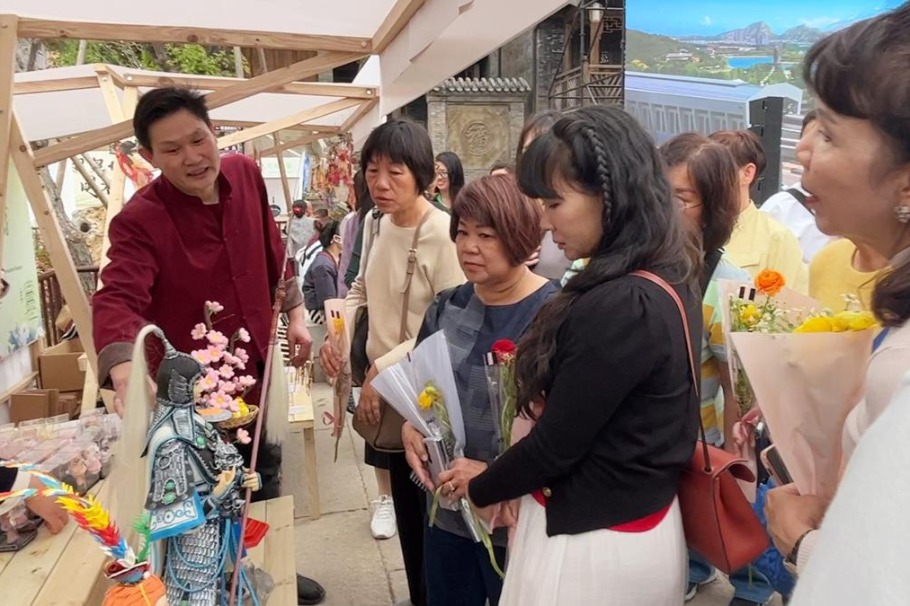Hunan cuisine adds flavor to Sino-Malaysian bond

The sizzle of chili-filled woks and the aroma of fermented spices of Hunan cuisine have orchestrated a symphony of friendship between Malaysia and China, as delicacies build a flavorful bridge across centuries-old trade routes and modern dinner tables.
From the historic marine corridors of the Strait of Malacca to the neon-lit alleys of Malaysia's capital, Kuala Lumpur, this culinary love affair is redefining cross-cultural bonds — one mouthwatering dish at a time, according to a report by Hunan Daily.
Hunan cuisine's journey to Malaysia mirrors a timeless truth: In the alchemy of chili oil and cultural curiosity, borders dissolve. As chopsticks clink over steaming plates, Malaysia and China savor more than just flavors — they taste the future of a friendship, simmered to perfection.
At the National Museum of Malaysia, a replica of a 15th century merchant ship stands testament to the Strait of Malacca's role as a historical spice highway. Centuries after Spanish and Portuguese traders first ferried chili peppers to Asia, local people have developed a palate for spicy food.
Today, it is the bold flavors of Hunan dishes, such as braised pork and blood duck, that ignite Malaysian taste buds and transform eateries into hubs of cultural exchange.
Leading the charge is Hu Mengyun, a tenacious restaurateur from Huaihua, a city in Hunan. In 2001, after witnessing Malaysian people's untapped appetite for authentic food, she brought six Hunan cuisine chefs with her to open a restaurant in Kuala Lumpur.
"Hunan dishes were mere footnotes in Sichuan or Cantonese menus back then," she told Hunan Daily.
With more Chinese people and enterprises venturing into Kuala Lumpur, Hu's restaurant quickly expanded to three branches and a spin-off noodle brand.
Jerry Aw, 68, shares this zeal. As the taste of a signature Hunan dish — fish head with chopped chili peppers — was tantalizingly out of his reach in Malaysia, he decided to open his own eatery in Kuala Lumpur.
"We never water down our recipes, and stick to the original taste," he emphasized, noting that 80 percent of his customers were locals.
Aw, who is now retired and advises his daughter on running the eatery, said the chefs are all from Hunan and are like his brothers.
"They are direct and hotheaded, just like when I was younger," he said, adding that the chefs have followed him for a long time and wouldn't leave the eatery even if some other restaurant offered them double the salary.
One of the chefs, Zhu Weijin, 43, has worked for Aw for more than 17 years. He went to Malaysia when he was 26, and decided to stay on.
Zhu said his boss trusts him and gives him a lot of freedom in the kitchen. "There are more than 100 Hunan restaurants in Malaysia, but the one where I work is still among the top," he said.
Behind the scenes, supply chain master Feng Guohua ensures freshness. His high-altitude farm in Hunan's Guidong county — where peppers ripen under misty peaks — delivers harvests to Kuala Lumpur within 10 days through cold chain logistics.
"Running the supply chain is our lifeline," said Feng, who also owns a restaurant chain with 10 overseas branches.
From Guidong's terraced fields to Malaysian kitchens, this seamless network fuels Hunan's global gastronomic footprint.
For media veteran Leong Weiping, executive director of Asia Television Holdings, these dishes are more than meals; they are emissaries. "When Malaysians taste braised pork or chopped chili fish head, they develop a longing to visit Hunan," he said.
Malaysia is a very inclusive country, where different cuisines find ample room to flourish, Leong said, while hailing the power of food in bringing people from different countries together.
"Food is like a big bridge. It forges kinship through shared heritage," he added.




































